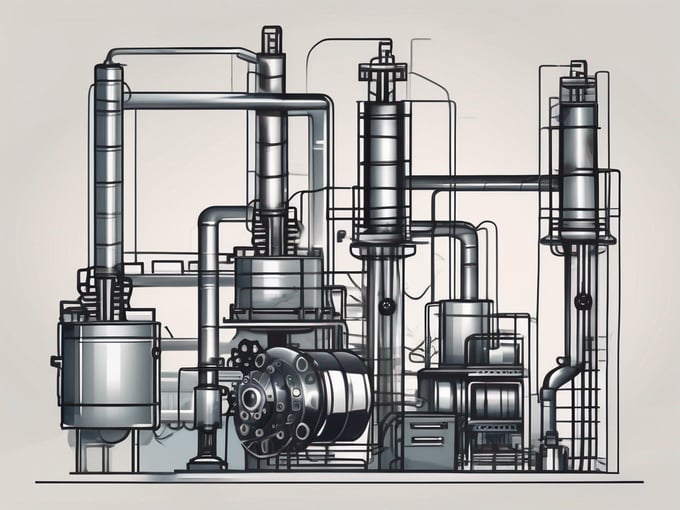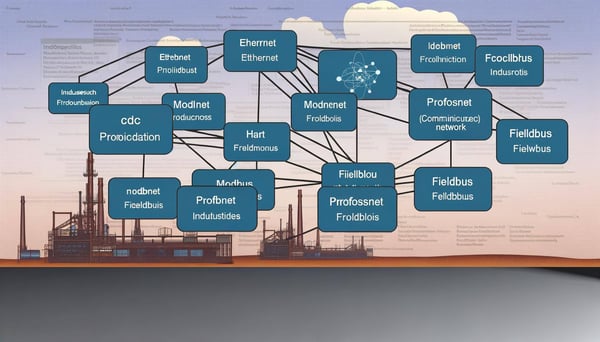
Fundamentals of CIP (Common Industrial Protocol)
In the realm of industrial automation, communication protocols play a pivotal role in ensuring seamless interaction between devices and systems. One such protocol that has gained significant traction in the industry is the Common Industrial Protocol, commonly referred to as CIP. This article delves into the fundamentals of CIP, its applications, benefits, and how it stands out in the industrial protocol landscape.
The Basics of Common Industrial Protocol (CIP)
What is CIP?
The Common Industrial Protocol (CIP) is a communication protocol designed for automation applications in industrial settings. It is an open standard that provides a framework for the exchange of data and control information in industrial environments. CIP is device, vendor, and communication media independent, making it a versatile choice for various industrial applications.

Developed by Rockwell Automation and maintained by the Open DeviceNet Vendor Association (ODVA), CIP is designed to encompass a wide range of manufacturing automation applications. Its flexibility and robustness have made it a preferred choice for many industry professionals.
How Does CIP Work?
CIP uses an object-oriented design, which means it represents physical and logical devices as a collection of objects. Each object has a set of attributes that define its characteristics and a set of services that define its behavior. This approach allows for a high level of abstraction, making CIP a highly flexible and scalable protocol.
The protocol operates on top of a variety of network technologies, including Ethernet/IP, DeviceNet, and ControlNet, among others. This allows for seamless integration with existing network infrastructures, reducing the need for costly upgrades or replacements.
Applications of CIP
Industrial Automation
One of the primary applications of CIP is in industrial automation. The protocol's flexibility and scalability make it ideal for a wide range of automation tasks, from simple machine control to complex process automation. Its object-oriented design allows for easy integration with a variety of devices and systems, making it a versatile choice for automation applications.
Furthermore, CIP's support for a variety of network technologies means it can be used in both wired and wireless environments, providing flexibility in terms of deployment and operation.
Manufacturing
In the manufacturing sector, CIP is used to facilitate communication between various devices and systems. This includes communication between machines on the shop floor, as well as between these machines and higher-level systems such as Manufacturing Execution Systems (MES) and Enterprise Resource Planning (ERP) systems.
By providing a standardized framework for communication, CIP helps to streamline manufacturing processes, improve efficiency, and reduce downtime. It also supports real-time communication, which is crucial in a manufacturing setting where timely decision-making can have a significant impact on productivity and profitability.
Benefits of CIP
Interoperability
One of the key benefits of CIP is its support for interoperability. As an open standard, it can be used with devices and systems from a variety of vendors, eliminating the need for proprietary solutions. This not only reduces costs but also simplifies integration and maintenance.

Furthermore, CIP's support for a variety of network technologies means it can be used in a wide range of environments, from traditional wired networks to modern wireless ones. This provides a high level of flexibility in terms of deployment and operation.
Scalability
CIP's object-oriented design makes it highly scalable. It can be used in a wide range of applications, from simple machine control to complex process automation. This scalability means that CIP can grow with your business, providing a future-proof solution that can adapt to changing needs and requirements.
In conclusion, the Common Industrial Protocol (CIP) is a versatile and robust communication protocol that has a lot to offer in the realm of industrial automation. Its flexibility, scalability, and support for interoperability make it a preferred choice for many industry professionals. Whether you're looking to streamline your manufacturing processes, improve efficiency, or reduce downtime, CIP is a protocol worth considering.



